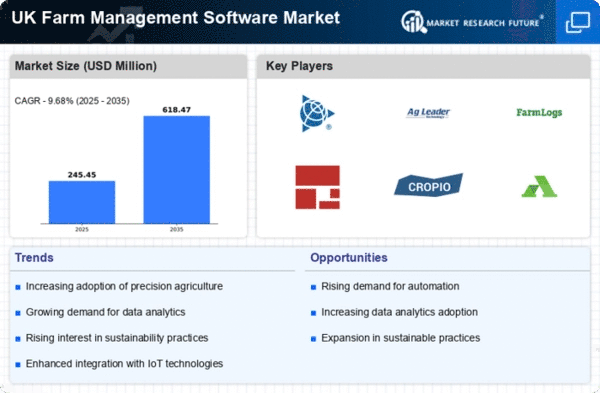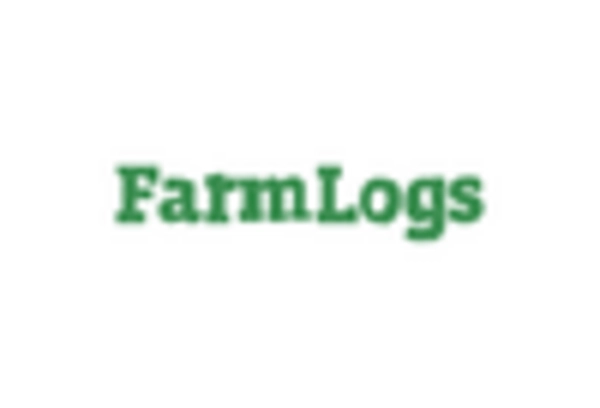Rising Labour Costs
In the UK, rising labour costs are significantly impacting the farm management-software market. As wages increase, farmers are compelled to seek efficiencies through automation and technology. The average wage for agricultural workers has risen by approximately 5% annually, prompting a shift towards software solutions that can streamline operations and reduce reliance on manual labour. This trend indicates a growing recognition of the value of farm management software in optimising resource allocation and enhancing productivity. Consequently, the demand for such software is expected to rise as farmers look to mitigate the financial pressures associated with labour costs.
Government Support and Subsidies
Government initiatives play a pivotal role in shaping the farm management-software market. The UK government has introduced various subsidies and support schemes aimed at encouraging the adoption of digital technologies in agriculture. For instance, the Countryside Productivity Scheme provides funding for innovative projects that enhance farm efficiency. Such financial incentives are likely to stimulate interest in farm management software, as farmers seek to leverage these resources to improve their operations. This supportive environment fosters growth in the market, as more farmers recognise the potential benefits of integrating software solutions into their practices.
Technological Advancements in Agriculture
The farm management-software market is experiencing a surge due to rapid technological advancements in agriculture. Innovations such as precision farming, which utilises GPS and IoT technologies, enable farmers to optimise their operations. This trend is reflected in the increasing investment in agricultural technology, with the UK government allocating £160 million to support agri-tech initiatives. As farmers adopt these technologies, the demand for sophisticated software solutions that can integrate with various devices and platforms is likely to grow. This shift not only enhances productivity but also improves decision-making processes, making it a crucial driver for the farm management-software market.
Increased Focus on Data-Driven Decision Making
The farm management-software market is witnessing a shift towards data-driven decision making among farmers. As agricultural practices become more complex, the ability to analyse data effectively is becoming essential. Farmers are increasingly recognising the value of software that can provide insights into crop performance, soil health, and market trends. This trend is underscored by the fact that 70% of UK farmers believe that data analytics can enhance their decision-making processes. Consequently, the demand for farm management software that offers robust data analysis capabilities is likely to grow, driving market expansion.
Consumer Demand for Transparency and Traceability
Consumer preferences are evolving, with a growing demand for transparency and traceability in food production. This trend is influencing the farm management-software market, as farmers seek solutions that can provide detailed records of their practices. The ability to trace the origin of food products is becoming increasingly important, particularly in the context of food safety and quality assurance. As a result, software that facilitates tracking and reporting is likely to see heightened demand. This shift not only aligns with consumer expectations but also supports farmers in meeting regulatory requirements, thereby driving growth in the farm management-software market.

















